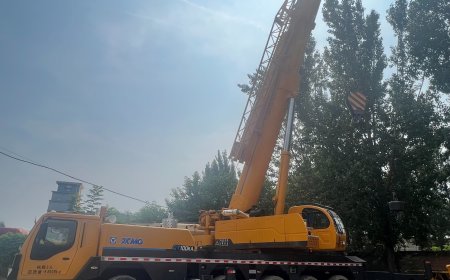Why an STNA Staffing Service Is Essential for Quality Long-Term Care
An STNA staffing service ensures quality long-term care by providing certified professionals, reducing staff burnout, improving continuity, and supporting flexible, compliant workforce solutions.

Reliable and competent staffing is necessary to provide consistent quality care in a nursing home. One of the most critical players in these settings is State Tested Nursing Assistants(STNAs), who play a central role in providing direct care and day-to-day support to residents. While the healthcare industry has been challenged with staffing shortages, a professional STNA staffing service is becoming the healthcare facilities keystone for providing remarkable care and operational performance.
These offerings have proven essential in meeting the changing demands of long-term care while offering residents dependable, loving care coupled with reduced stress on full-time staff and administrators.
The Growing Demand for STNAs
Nursing homes and assisted living communities have never faced a staffing problem like this. The aging of the population, the increased acuity level of residents, and youve got ongoing workforce turnover on top of it all, and we just dont have the people. As part of the resident care team in this setting, STNAs are a vital part of helping residents complete activities of daily living, which might include using the bathroom, eating or drinking, or mobilizing.
Staffing STNAs is an ongoing struggle for many homes. This is where a specialized STNA staffing service is not only helpful, it is necessary.
Benefits of Working with a Dedicated Staffing Partner
Teaming up with a dedicated staffing provider gives you a ready supply of qualified, experienced STNAs who are ready to handle the unique requirements of long-term care. These professionals are rigorously vetted, credentialed, and, in many cases, available to work with little notice. Facilities gain by getting open shifts filled quickly without sacrificing the quality of care.
Beyond providing coverage, staffing firms deal with hiring, verifying credentials, and compliance with healthcare regulations. This takes the administrative load off of internal teams and allows facility leaders to concentrate on providing better patient care and streamlining operations.
Supporting Continuity and Resident Care
Continuity of care is particularly crucial in long-term care, where residents come to know and trust the people who care for them routinely. A reliable STNA staffing service can help preserve this consistency by providing reliable, long-term placements and finding professionals who are the best match for a facility in terms of skill, experience, and facility culture.
For instance, at Straightline Staffing, we work on connecting qualified STNAs with facilities that complement their skill sets and career aspirations. This caring placement strategy benefits residents and staff alike, with better outcomes for all concerned.
Flexibility and Workforce Stability
Flexibility is another important advantage of staffing services. Facilities are able to flex up and down their workforce based on census levels, seasonal needs, and unexpected absences. Whether it be per diem shifts, weekend coverage needs, or other more extended coverage options, a professional staffing service has a plan for every kind of need to help meet the demand and retain order.
This method of covering shifts also helps prevent burnout for permanent staff, who might otherwise face overtime or extra shifts to cover. This, in turn, encourages job loyalty, morale, and a better work atmosphere.
Ensuring Compliance and Reducing Risk
The staffing companies keep up with changing healthcare regulations, both state and federal. With a professional staffing service, facilities know the STNAs they are hiring are fully licensed and properly documented as required under state law. Agencies also generally take care of payroll, insurance, and other HR duties, reducing legal and financial risk.
Safety First For those administrators deeply concerned with compliance and managing risk, collaborating with a trusted staffing partner enables peace of mind and operational effectiveness.
Conclusion
In an ever-challenging healthcare industry, an LTC facility needs to employ staffing solutions that deliver consistency, quality, and continuity of services. A seasoned STNA staffing partner isnt a band-aid fix; rather, its a critical piece of the puzzle in providing top-tier resident care and maintaining a strong workforce.
Since the demands for an older age class and the demands for more staffing are increasing, the necessity for well-trained, certified STNAs, who are reliable and who come through a professional service is not only necessary but an already essential part of the recipe for success in long-term care.





























